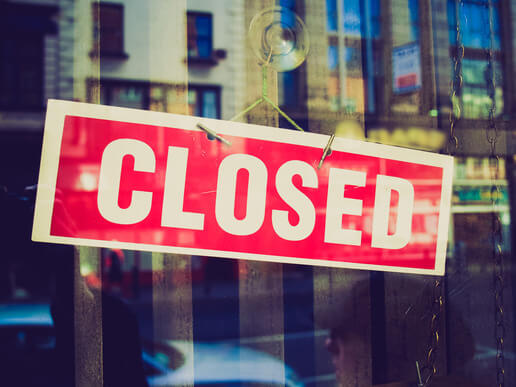
You’ve put your life into your business. You built it from scratch, you developed it, and you turned it into a success. Are you prepared to walk away one day, losing everything, if you suddenly can’t access your building, inventory, or equipment?
Business interruption insurance can offer protection if your premises are damaged and unusable. While this coverage is generally added to a property insurance policy or included in a package policy, business owners must understand the coverage and make sure they have the appropriate limits.
Why Do You Need It?
If you were cut off from your business location, for example the building is damaged in a fire, you might have to temporarily cease operations. Depending on your business, maybe you could set up elsewhere and get back to work in a day or two. However, without access to your inventory or supplies, perhaps you would be down for weeks or months. Even a temporary closure could likely result in lost income and an increased susceptibility to competition. Many businesses aren’t in a position to sustain any downtimes, but business interruption insurance can help.
What Does It Cover?
After a waiting period, your policy can pay for a number of different things.
It can help cover the income you would have received from the business if it were open. It’s important to have the business properly evaluated so you can effectively estimate what that income would be and ensure you have the correct limits in the policy. If the business is growing and changing, it’s important that the policy is reviewed annually so that the limits can keep pace. Continuous revenue will help keep the operation viable while you work towards reopening.
Business interruption insurance can also cover fixed operating expenses attributed to the business such as electricity and rent. Another facet of this coverage is extra expense insurance, which can reimburse for additional expenditures made to avoid having to shut down completely. For example, extra expense insurance might pay for a relocation of some employees to another location so that the business can remain operational during a repair in the original building.
Related Coverages
While you’re considering your needs and creating a business continuity plan for a variety of outages, you may want to give some thought to other coverages.
If your business relies on a third party in order to operate, you may want to consider contingent business interruption insurance. If a supplier was unable to supply you due to a covered cause of loss and you could not make your product, contingent business interruption insurance might help lessen the financial blow.
What if your business could not operate due to a cyber attack? Business interruption insurance is only going to come into play if your business is shut down by a covered peril such as fire, vandalism or equipment breakdown. However, if your business is hacked and your data is destroyed, you may be out of luck. A cyber policy can help mitigate that loss.
Determining How Much Coverage You Need
There’s no one-size-fits-all when it comes to business interruption insurance or the other related coverages. The amount of coverage you need is determined by a multitude of factors including how much revenue your company generates, what your fixed expenses are, then length of time you might be down, and whether or not you will continue to pay employees during this time.
An experienced insurance advisor can help determine which coverages are right for your business and help get a proper valuation for your business. Finding out the correct amount of insurance you need can save time and money down the line.
All insurance policies are different. Be sure to review your insurance policy for specific information about coverages available to you. Nothing in this post is meant to suggest a guarantee of coverage.
